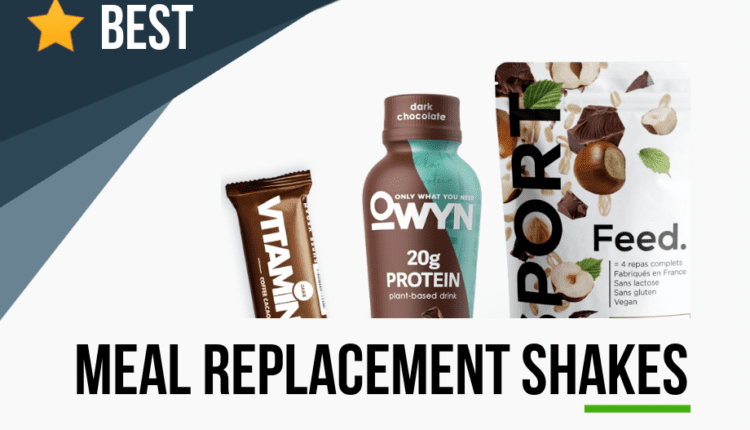I have always struggled to explain what a meal replacement is to my colleagues, family or friends.
Every time I try to introduce them to the “new way of eating” or describe what I do for a living, I end up giving a long, twisted explanation that confuses everybody.
However, the original premise is simple:
What Are Meal Replacements?
Meal replacements or complete foods are food. Food that comes in different formats, but contains all the essential nutrients your body needs per meal.
In this article, I will go into more detail about what a meal replacement is; clear up if meal replacements are healthy or not; and hopefully convince you to give them a try.
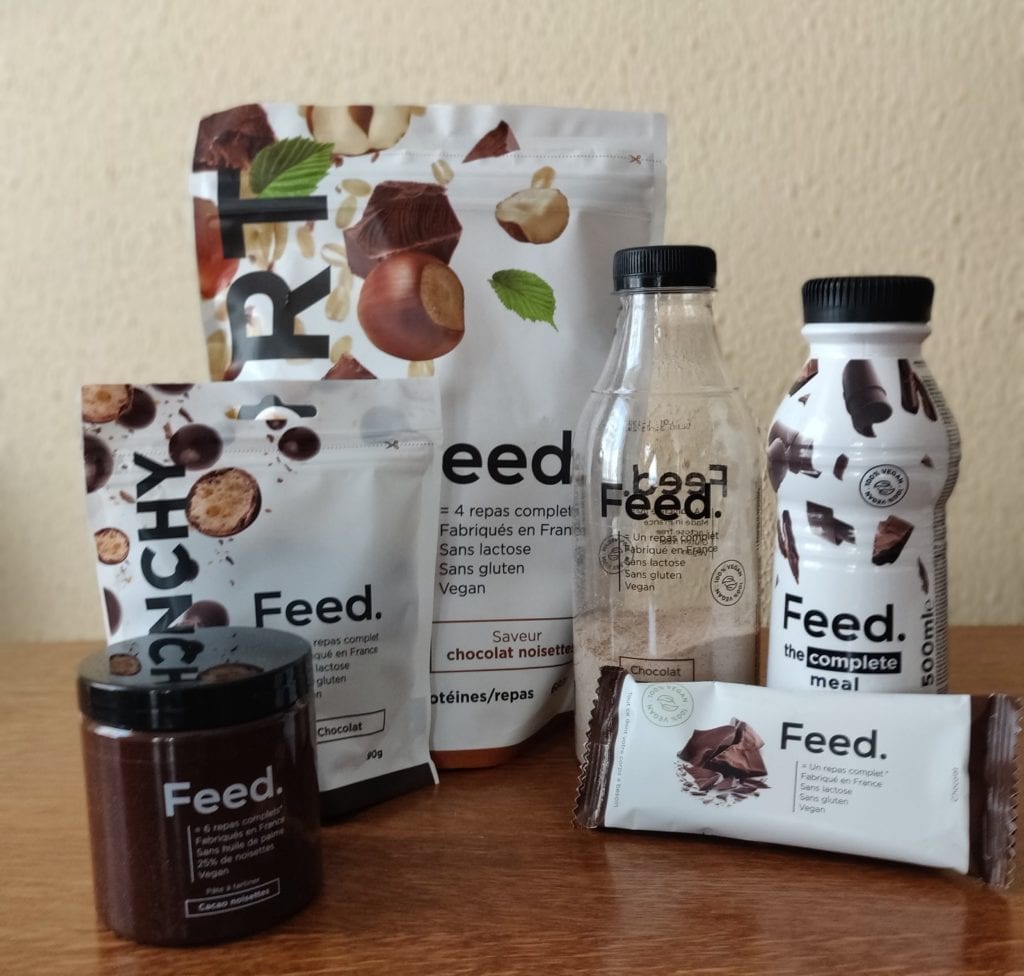
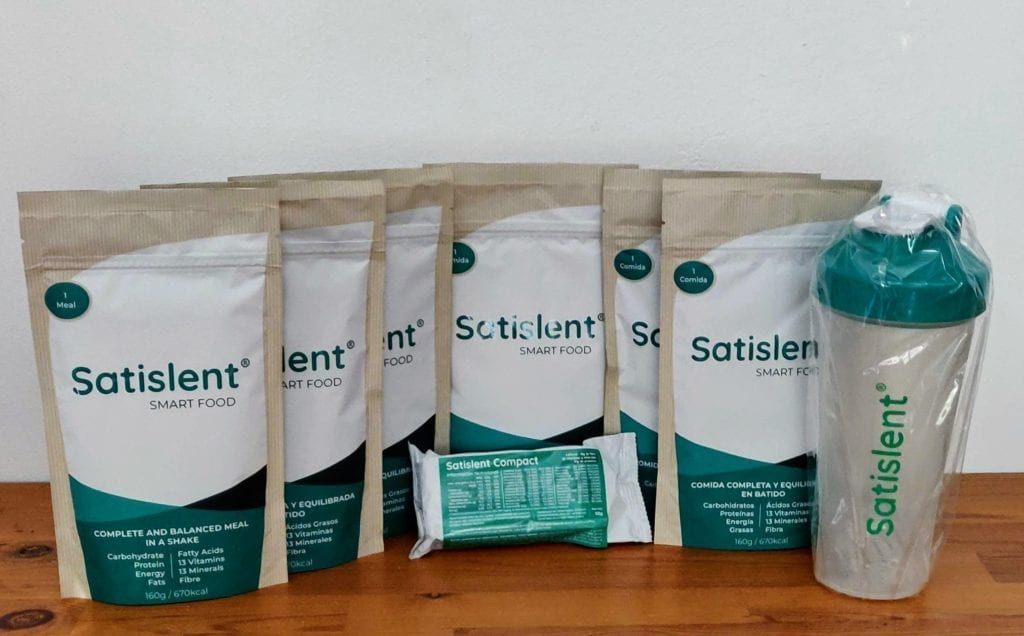
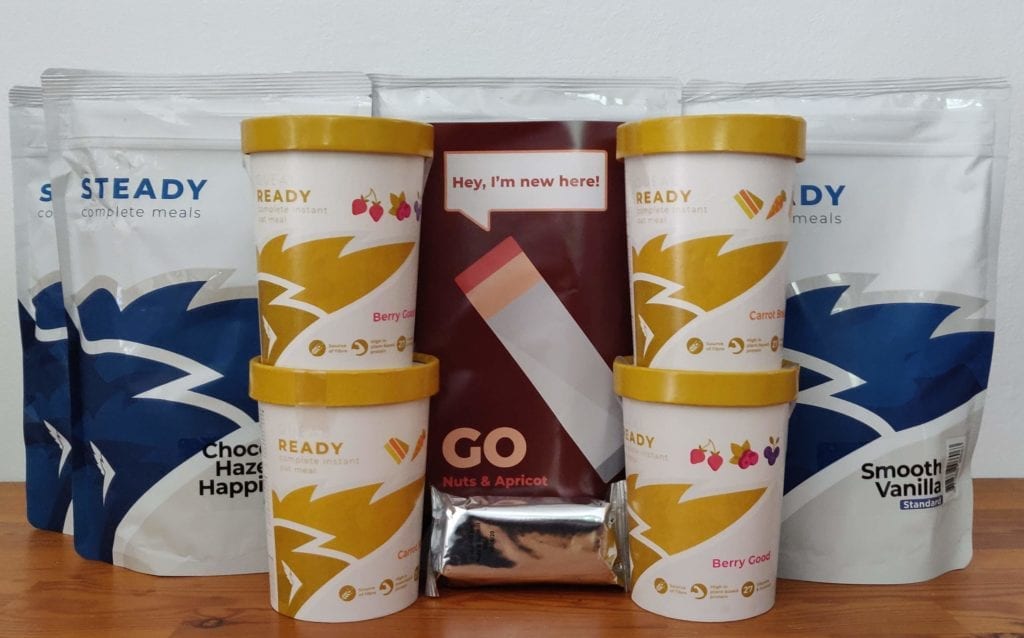
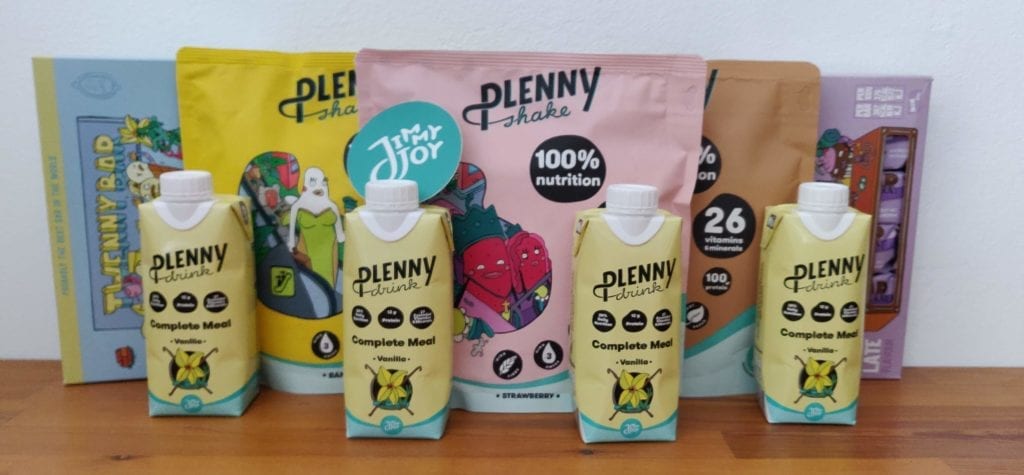
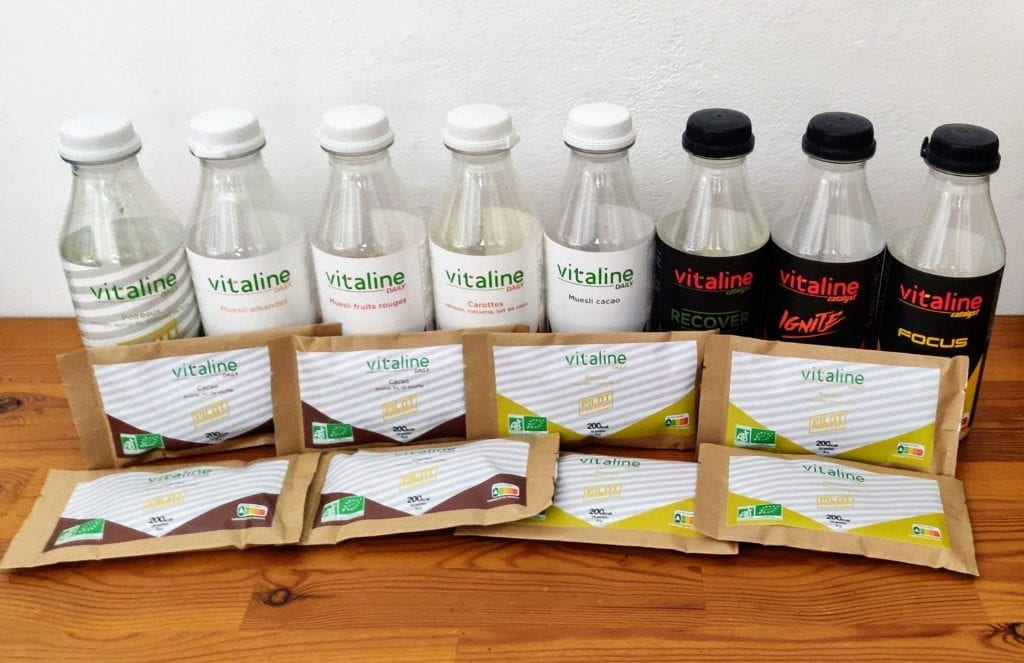
Definition:
A meal replacement or a complete food is a nutritional product based on the current scientific understanding of human nutritional needs. It aims to provide a complete and balanced set of nutrients that will satisfy all your daily needs.
Complete foods will have enough macronutrients (fats, carbohydrates, protein and fiber) and micronutrients (vitamins and minerals) to supply all your nutritional needs per meal.
Most products will be based on a 2,000kcal diet and the nutrient guidelines of international food agencies, such as, European Food and Safety Agency (EFSA), World Health Organization (WHO), US health agencies (FDA, USDA, HHS) or local governmental organizations (NHS, AUS government…).
Per each meal, they will supply a percentage of the daily your daily nutrients (based on 2,000kcal diets). E.g. A brand providing meals of 500kcal will provide you with 25% of the daily micronutrients and macronutrients (this will vary more) per serving; so that 4 servings will cover all your needs.
Types of Complete Foods:
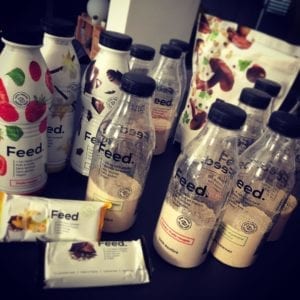
1. Powder
The most common way to sell and consume meal replacements.
The food is processed or blended into powder and sold in bags containing one or more servings. You place the powder in a shaker, add water or milk and shake it in order to consume it.
It’s the most common and affordable way, as well as, arguably the healthiest form of complete foods.
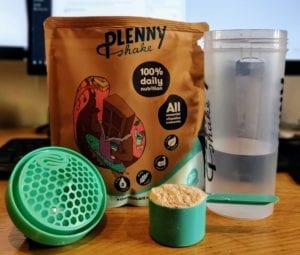
2. Ready to Drink (RTD)
These are shakes that have been fully prepared by the manufacturer and are ready for consumption.
Just like protein shakes or breakfast shakes sold in supermarkets, the user only needs to open the bottle and drink their meal. However, they will contain 330-500kcal per serving; being much more filling than the average supermarket protein drink (~200kcal).
We have selected the best ready to drink products if you are interested.
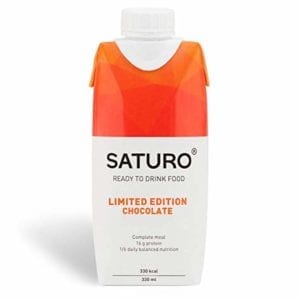
3. Powder in the Bottle
This is a mix between the last two.
The powder is placed in a bottle (one serving per bottle) so the user only needs to add water or milk and shake it. It has the advantage of portability the RTD do, but without having to develop a new product. For example: Vitaline, Feed….
In the recent years, this form has gone out of fashion due to the environmental concerns and lack of clear benefits towards the standard powder.
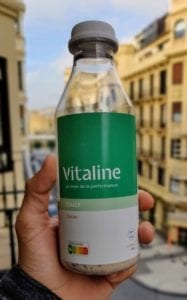
4. Meal Replacement Bar
Bars are the most common solid meal replacements.
They are very similar to protein bars or snack bars, but they contain a balance nutrition the others do not. Besides providing you with 200-400kcal, 20g of protein (on average) and healthy fats and carbs; they also contain all the vitamins & minerals your body needs.
Some of the best meal replacement bars include, Feed. Bar, Plenny Bars, Powdermatter…
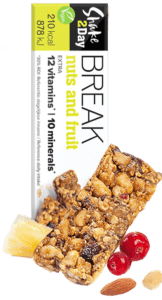
5. Food-like or Hot & Savoury Complete Foods
Lately, some brands have been developing new types of solid meal replacements, such as Instant Oats or Hot&Savoury for Huel.
Brands are trying to offer a “chewable” experience to the user while providing with a balanced meal.
Among the most interesting products we find Plenny Pots, Vite Ramen (instant noodles), Mana Burger and more.
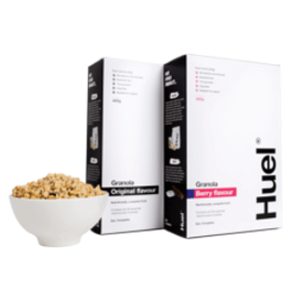
| PROS | CONS | |
| Powder |
|
|
| RTD |
|
|
| Powder in bottle |
|
|
| Bars |
|
|
| Other |
|
|
Why Eat Meal Replacements over Food?
You might be asking why would anyone eat something so artificial (which is not) over real food?
In fact, there are many reasons, why you would opt to have a meal replacement instead of food. According to the complete food survey 2018, these are the main reasons:
- Time constrains. A lot of people seem to be short on time especially at breakfast and lunch time. They do not have the required time to cook or to go to eat a healthy meal to a restaurant. As such, they decide to take a shake and have their meal within 3 minutes.
- Nutrition. People care about what they eat and put in their bodies more and more. Meal replacements contain carefully chosen ingredients and measurable quantities of micro and macronutrients. Thus, it helps many to choose what they eat.
- Health. This reason is directly correlated to the other two. Meal options that are quick and nutritionally balanced or healthy are limited. Knowing that you are having a healthy meal, without having to sacrifice cooking time or nutritional value is a luxury for many.
- Price. Think about how much a sandwich costs in the supermarket, or how much fast food costs or the lunch at the canteen. Well, you can have a complete food meal for about $1.5/€1.3/£1.2 (even cheaper if you want). Now, this enables a lot of savings to students, office workers or any other person looking to save some bucks in their food bills.
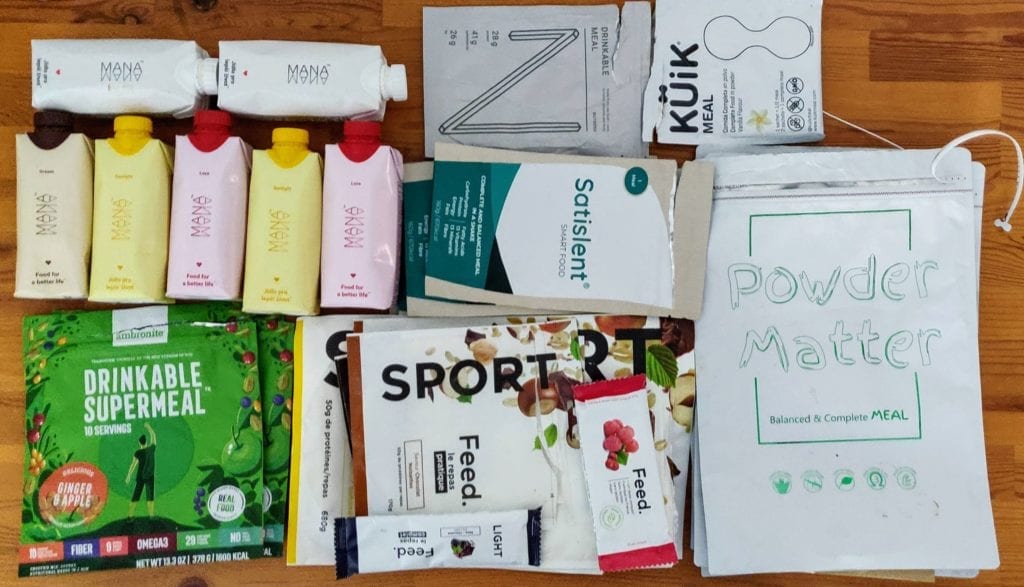
Other Reasons:
- Convenience. Complete foods are extremely convenient. It takes very little time to prepare them (about 1 minute for powder, none for RTDs), you can take them wherever you want (work, gym, hiking, travelling), consume them within a minute (or longer if it pleases you) and have no need for any major cleaning (just the shaker).
- They help you achieving your weight goals easier. Looking to gain or lose weight? Meal replacements allow you to track what you eat more easily, so the process is simplified.
- The barrier of entry is minimal. You do not need to be a masterchef or a nutrition expert to start with complete foods. There is no need to know how to cook, which ingredients are best, meal planing etc. While a little knowledge is strongly recommended, all you need to do is buy a product and follow the guidelines and recommendations given by the manufacturer.
- They allow you to have variety. In theory, there are tons of foods and recipes out there, but in practice we end up consuming the same meals again and again (especially for breakfast and at work). Meal replacements include many different flavours and tastes depending the brand. You can switch around your meals with minimal effort.
- Dietetic reasons. Following Vegan, Keto or paleo diets can be hard. Meal replacements allow you to not have to worry about one or more meals a day and to keep your diet on the go; without having to worry to much about it. Check our top picks for Keto shakes to learn more.
- Health reasons. People who have certain medical conditions or struggle eating food due to a certain surgery find the solution in meal replacements, since they allow them to keep their diet at check (often very important) and controlled (both calorie and nutrient wise).
Environmental Reasons:
- Food waste. Meal replacements minimize food waste, since you are able to have customized servings per meal. Plus, they tend to last between 6-12 months if stored in a cold dry place, therefore you tend to have plenty of time to consume it all. This is particularly true for powder meal replacements.
- General waste. Not only the food waste is minimal but the general waste is minimal too. While the RTDs produce more waste (since they are delivered in plastic bottles) than powder versions; both create less waste than standard food in most cases. Think about all the wrapping in your fast food, or the packaging in your sandwiches or the ingredients you use for cooking.
- Veganism. Strictly speaking, Veganism is not an environmental reason. However, with the recent claims that changing to a plant-based diet is one of the most environmental friendly things an individual can do, I must include it here. Many brands are choose to go fully plant-based for environmental reasons.

I guess the take home message is that they allow you to put minimal effort while providing you with a nutritious, healthy, balanced meal that is extremely portable and usually affordable. They are also more environmentally friendly than most of the conventional food.
What Is Not a Meal Replacement?
There is certain negative stigma around meal replacements, mostly arisen from misconceptions and lack of understanding what a meal replacement is and is not.
A Supplement
A complete food is not a supplement, like vitamins, omega-3, probiotics, protein shakes, mass gainers…
While it supplements your overall diet and it can be a very useful tool to boost some of your nutrient needs (antioxidants, micronutrients, omega-3…); a meal replacement will almost always offer you a well rounded up profile of ALL the nutrients you need per set meal.
This is not only one or two nutrients, but everything you would need for that meal according the scientific knowledge.

Let’s make an analogy: A supplement would give you a player for your sport (a point guard for basketball, a striker for footbal or quaterback for american footbal), whereas a meal replacement will provide you with the full team (coach, players, managers, physios…).
A Protein Shake
“Can I use a protein shake as a meal replacement?” or “What is the difference between a protein shake and a meal replacement?” are two questions I get asked a lot, since most people are familiar with the first but not the second.
When you put a protein shake vs a meal replacement product, the first distinction you can make is the goal of the product.
- Protein shakes (and protein supplements) aim to boost your protein intake, thus they mostly provide with protein (while they can have carbohydrates and fats to different degrees).
- Meal replacements aim to replace food (meals), thus they provide you with all the macros in a balanced way, plus the micronutrients plus other nutrients (e.g. antioxidants). Thus, you would not be able to live solely off protein shakes, since your body would need fats, carbs, vitamin C, iron, calcium… while you can live off meal replacements without any major problems.
Following with the sports analogy, taking a protein shake it would be like trying to boost your offence but nothing else. You only care about the offence. Whereas meal replacements would make sure to boost the offence, the defense, the coaching staff…
A Weight Loss Shake
Meal replacements are not shakes or foods that you only take if you are on a weight loss program. Even thought the best meal replacements for weight loss can help achieving your weigh loss goals, most brands look beyond this use-case.
In fact, meal replacements are for EVERYBODY. They are designed to satisfy the needs of the majority of the population (97%) and be able to replace one or more meals for anybody who wants.
This stigma of meal replacements being for people who are on extreme weight loss diets is wrong.
While weight loss shakes and medicinal meal replacements have been around for a while, the commercial complete foods are not very much alike them and aim to serve anybody.

Food Replacement for Those Who Do Not Like Eating
You do not need to dislike eating to have a meal replacement shake or a bar.
I, myself, love food, but I acknowledge that sometimes I do not have the time, the will or the availability to eat good real food.
Therefore, instead of having a crappy sandwich, some fast food option or some unhealthy snack, I prefer having a complete food alternative that suits my needs better.
How Do You Start with Meal Replacements?
I would recommend you first visit my top picks for the best meal replacements:
In there you will find a plethora of options, including the best vegan shakes, the best keto shakes, high calorie shakes… or even my top pick for diabetics.
Besides, I list some that I use in daily basis.
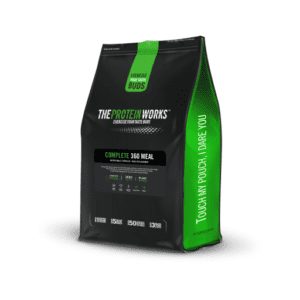
Complete 360 Meal
- Vegan, affordable and incredibly tasty
- Available Worldwide
- I use it frequently
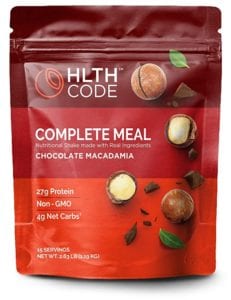
HLTH Complete Meal
- Keto friendly, low-carb high in protein, delicious
- Available worldwide
- My pick when I’m looking to cut carbs
Otherwise, you can contact me directly and ask for my opinion in our “Ideal Meal Shake Picker” page. In here you will find a form you can fill and I will get you back with the complete food that best suits you.
Summary
I hope that I have clearly explained what a meal replacement is and is not in this article.
To sum up, a meal replacement is a way of nutrition (food) that will enable you to have all the nutrients your body needs (micro-/macronutrients, antioxidants, phytonutrients) per set meal.
They are often balanced according a 2,000kcal diet and provide all the nutrients specified by ESFA, WHO, US Heath dietary guidelines. Almost all meal replacements are able to substitute food 100%, even though they are better use as a boost to your diet or alternative for one or two meals a day.
There are 3 main ways to consume meal replacements: Powder (then converted into shakes), ready-to-drink shakes and meal replacement bars. All offer a convenient, affordable, quick and balanced nutrition that otherwise you would be unable to get.
There are multiple reasons to eat a complete food instead of a normal meal, including: dietetic reasons, environmental reasons, convenience, budget reasons, nutritional reasons or health reasons.
Contrary to popular belief, meal replacements are suitable for everybody. (Almost) Anybody can consume a meal replacement no matter the age (care with children), weight, height or gender.
Try it, it will surprise you and you might like it.
Resources to Get Started with Meal Replacements:
Want to start but do not know how? Let us pick the ideal meal replacement for you.
The Ultimate Meal Replacement List. An extensive list of the meal replacement brands that are available currently, ordered by country of origin.
My recommended meal replacement brands. Selection of some of the best brands and products I have tried so far. Including best organic shakes, best keto shakes, or best ready-to-drink shakes.
Meal replacement deals. The place to look for the latest discount codes or vouchers for your favourite brand.

